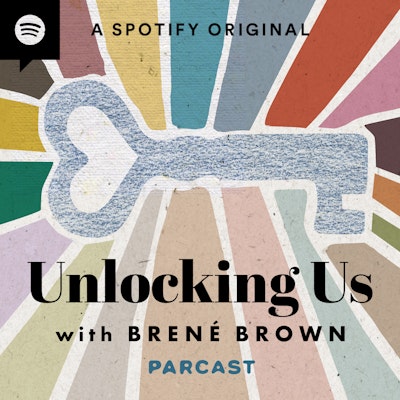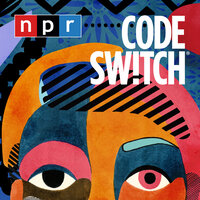
While there are various terms for the many levels of racism, this guide will highlight the work of Camara Jones, MD, MPH, PhD. Among her many accomplishments, she is particularly well known for her work "Levels of Racism: A Theoretic Framework and a Gardener's Tale", which employs a framework for understanding racism at three levels: institutionalized, personally mediated, and internalized racism.
Institutional racism (also known as systemic racism) refers to the differential access to the goods, services, and opportunities of society by race. Institutionalized racism is normative, sometimes legalized, and often manifests as inherited disadvantage. It is structural, having been codified in our institutions of custom, practice, and law, so there need not be an identifiable perpetrator. Institutionalized racism manifests itself both in material conditions and in access to power. Indeed, institutionalized racism is often evident as inaction in the face of need.
Personally mediated racism is defined as prejudice and discrimination, that is, differential assumptions about the abilities, motives, and intentions of others according to their race, and differential actions toward others according to their race. It manifests as lack of respect (poor or no service, failure to communicate options), suspicion (shopkeepers’ vigilance; everyday avoidance, including street crossing, purse clutching, and standing when there are empty seats on public transportation), devaluation (surprise at competence, stifling of aspirations), scapegoating, and dehumanization (police brutality, sterilization abuse, hate crimes).
Internalized racism may be defined as the acceptance by members of the stigmatized races of negative messages about their own abilities and intrinsic worth. It is characterized by their not believing in others who look like them, and not believing in themselves. It involves accepting limitations to one’s own full humanity, including one’s spectrum of dreams, one’s right to self-determination, and one’s range of allowable self-expression. It manifests as an embracing of “whiteness”, self-devaluation, and resignation, helplessness, and hopelessness.
“In a racist society, it is not enough to be non-racist, we must be anti-racist.” - Angela Y. Davis
When we choose to be antiracist, we become actively conscious about race and racism and take actions to end racial inequities in our daily lives. Being antiracist results from a conscious decision to make frequent, consistent, equitable choices daily. These choices require ongoing self-awareness and self-reflection as we move through life. In the absence of making antiracist choices, we (un)consciously uphold aspects of white supremacy, white-dominant culture, and unequal institutions and society. Being racist or antiracist is not about who you are; it is about what you do (National Museum of African American History & Culture)
Being antiracist is different for white people than it is for people of color. For white people, being antiracist evolves with their racial identity development. They must acknowledge and understand their privilege, work to change their internalized racism, and interrupt racism when they see it. For people of color, it means recognizing how race and racism have been internalized, and whether it has been applied to other people of color (National Museum of African American History & Culture)
Ta-Nehisi Coates’ “The Case for Reparations” is a 2014 essay in the Atlantic that crafted accounts from the century and a half after the end of slavery into a powerful argument that African Americans are owed compensation for their treatment in the United States.
This New York Times Opinion article by kihana miraya ross, a professor of African-American studies was written in June 2020, "The word “racism” is everywhere. It’s used to explain all the things that cause African-Americans’ suffering and death: inadequate access to health care, food, housing and jobs, or a police bullet, baton or knee. But “racism” fails to fully capture what black people in this country are facing. The right term is “anti-blackness.”
This article highlights the importance on language and how small changes can provoke new discussions about oppression.
The 1619 Project is an ongoing initiative from The New York Times Magazine that began in August 2019, the 400th anniversary of the beginning of American slavery. It aims to reframe the country’s history by placing the consequences of slavery and the contributions of black Americans at the very center of our national narrative.
Answering white people’s most commonly asked questions about the Black Lives Matter Movement. A Q&A by—and for—people with privilege who want to learn more about racial justice
Rhonda Magee is a law Professor at University of San Fransisco and in this article, she describes how inner work is key for fighting racism. Doing inner work is a way to address your implicit bias and practicing mindfulness has positive effects in communities with how people treat one another.
This organization provides statistics about police violence towards communities of color in the United States.
A 6,000-page reference center dedicated to providing information on African American history and the history of more than one billion people of African ancestry around the world.
An exploration of what young black Americans think about the political, cultural, and sexual choices and challenges confronting them.
A daily news site where race matters, featuring award-winning in-depth reporting, news analysis, opinion and curation.
Making all zines by people of color easy to find, distribute, and share. An experiment in activism and community through materiality.

Privilege refers to unearned social power accorded by the formal and informal institutions of society to ALL members of a dominant group (e.g. white privilege, male privilege, etc.). Privilege is usually invisible to those who have it because we’re taught not to see it, but nevertheless it puts them at an advantage over those who do not have it (Colours of Resistance Archive)
White Supremacy is the idea (ideology) that white people and the ideas, thoughts, beliefs, and actions of white people are superior to People of Color and their ideas, thoughts, beliefs, and actions. While most people associate white supremacy with extremist groups like the Ku Klux Klan and the neo-Nazis, white supremacy is ever present in our institutional and cultural assumptions that assign value, morality, goodness, and humanity to the white group while casting people and communities of color as worthless (worth less), immoral, bad, and inhuman and “undeserving (Racial Equity Tools).
White Advantage in the United States is the lived experience of greater social/political access, representation and entitlement, and material and economic security that people considered white have as a result of white supremacy. It's important to note that while many white people are oppressed on the basis of class, gender, sexual orientation, ability, religion, culture, ethnicity, etc, it is still true that ALL white people benefit from white advantage in various ways. Generally, white people who experience such advantage do so without being conscious of it (Dr. Robin Di Angelo and Peggy McIntosh).




Oppression: the combination of prejudice and institutional power which creates a system that discriminates against some groups (often called "target groups") and benefits other groups (often called "dominant groups"). These systems enable dominant groups to exert control over target groups by limiting their rights, freedom, and access to basic resources such as health care, education, employment, and housing (Vanderbilt).
Oppression = prejudice + power
Oppression is more than prejudicial thoughts and actions of individuals. Oppression is institutionalized power that is historically formed and perpetuated over time. Through the use of that institutionalized power, it allows certain groups of people or certain identities to assume a dominant position over other groups and identities and this dominance is maintained and continued at institutional and cultural levels (Collins).
Anti-Oppression is the strategies, theories, actions and practices that actively challenge systems of oppression on an ongoing basis in one's daily life and in social justice/change work. Anti-oppression work seeks to recognize the oppression that exists in our society and attempts to mitigate its effects and eventually equalize the power imbalance in our communities. Oppression operates at different levels (from individual to institutional) and so anti-oppression must as well.
Though they go hand in hand, anti-oppression is not the same as diversity and inclusion. Diversity and inclusion have to do with the acknowledgment, valuing, and celebration of difference, whereas anti-oppression challenges the systemic biases that devalue and marginalize difference. Diversity and inclusion and anti-oppression are two sides of the same coin - one doesn't work without the other - but they are not interchangeable (Collins).
Marginalization, or social exclusion, is when a group of people or a person are less able to access basic services and opportunities and is an act of disempowerment, with their needs being pushed to the side. Marginalized communities experience exclusion as a result of imbalance of power and usually experience discrimination. Unequal power is a key concept for the definition of marginalized: to be relegated to an unimportant or powerless position within a society or group.
Types of marginalization include social, political, and economic marginalization. Social marginalization refers to when a person is isolated from interaction and engagement with other people. Political marginalization is when a group is prevented from participating in a democratic decision-making process. Economic marginalization is when people are excluded from participating in the labor market or other economic structures.
Consequences of marginalization include hurting people materially and making it harder for marginalized communities to avoid poverty, negative affects to health with unequal access to resources and more difficult life conditions, and increased conflict as a result of protesting and communities seeking redress of their rights.